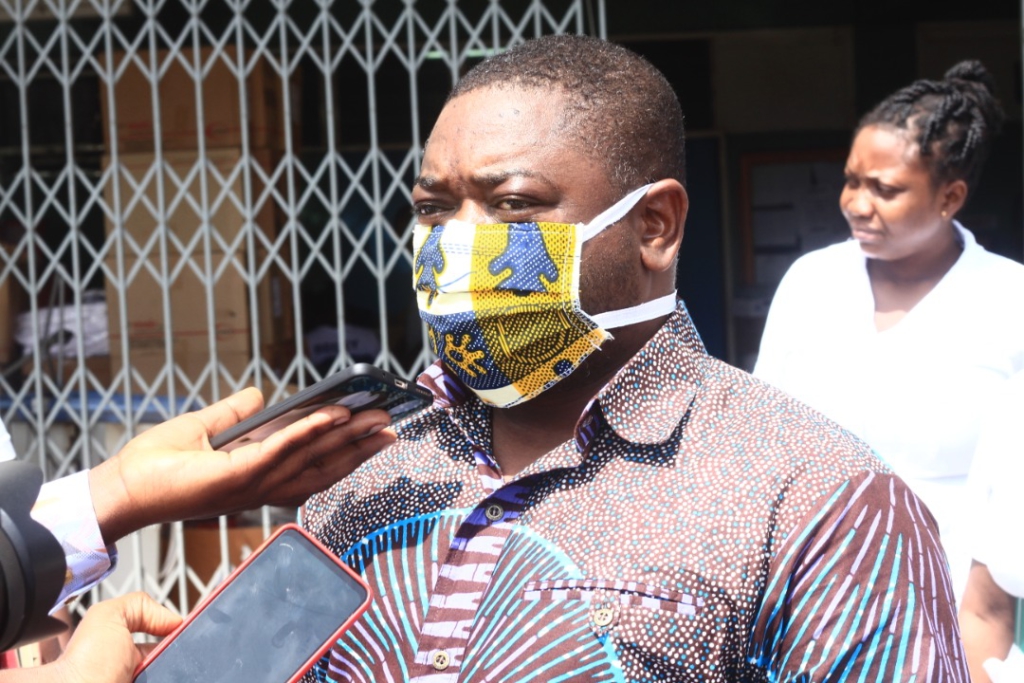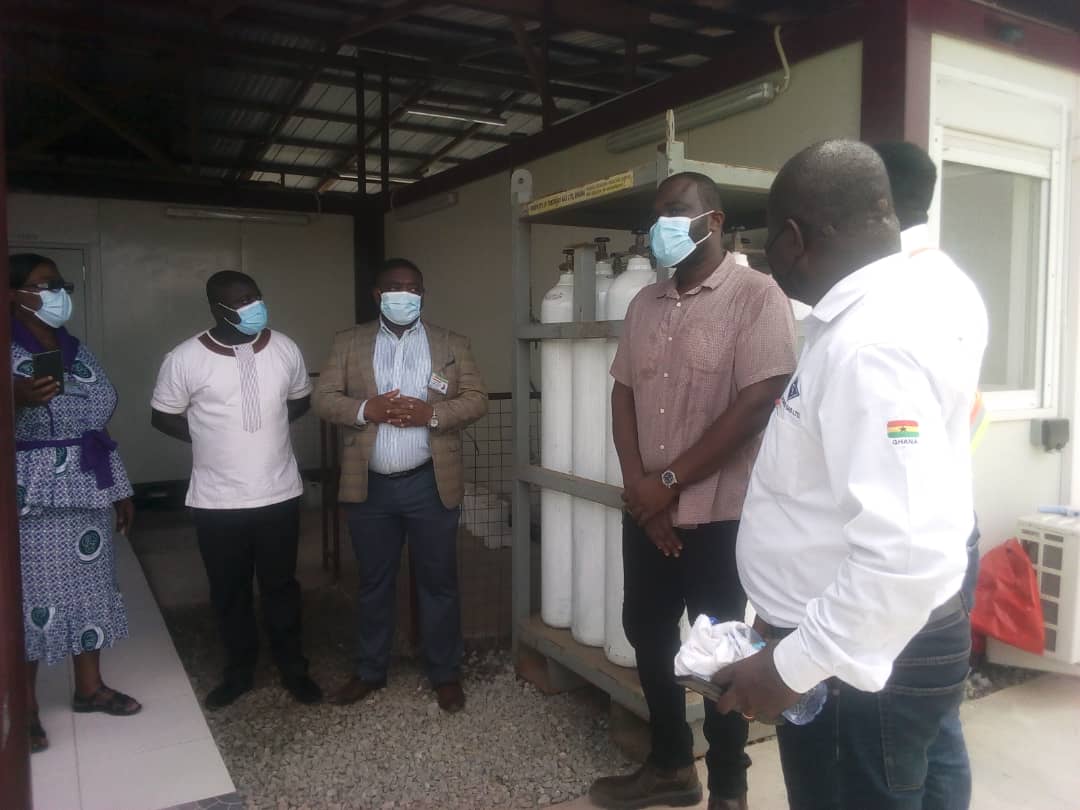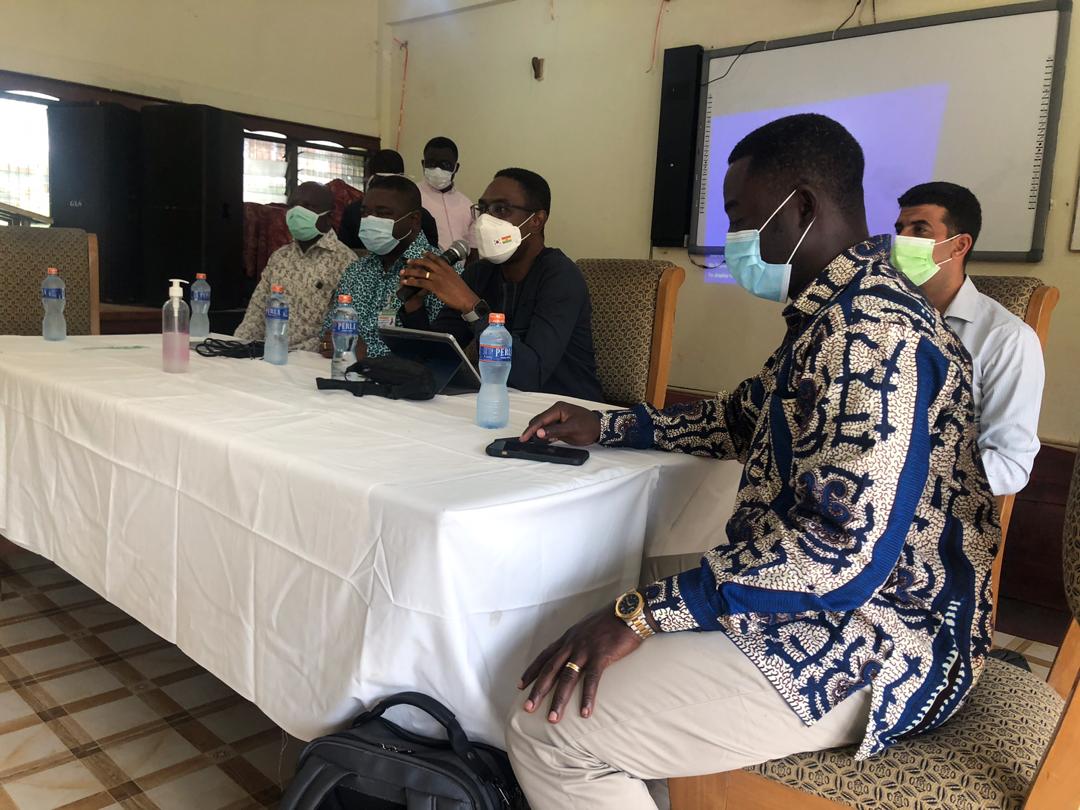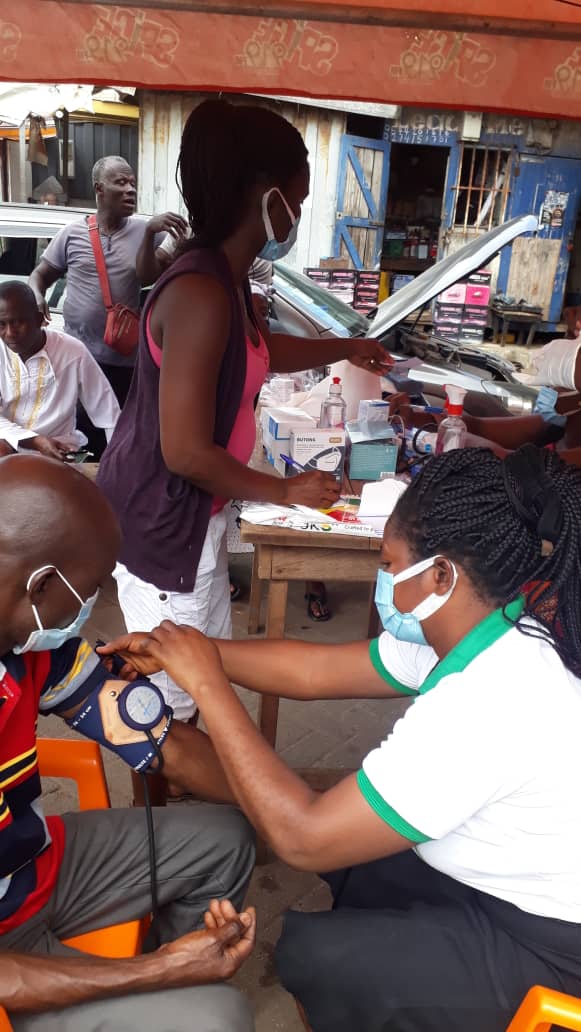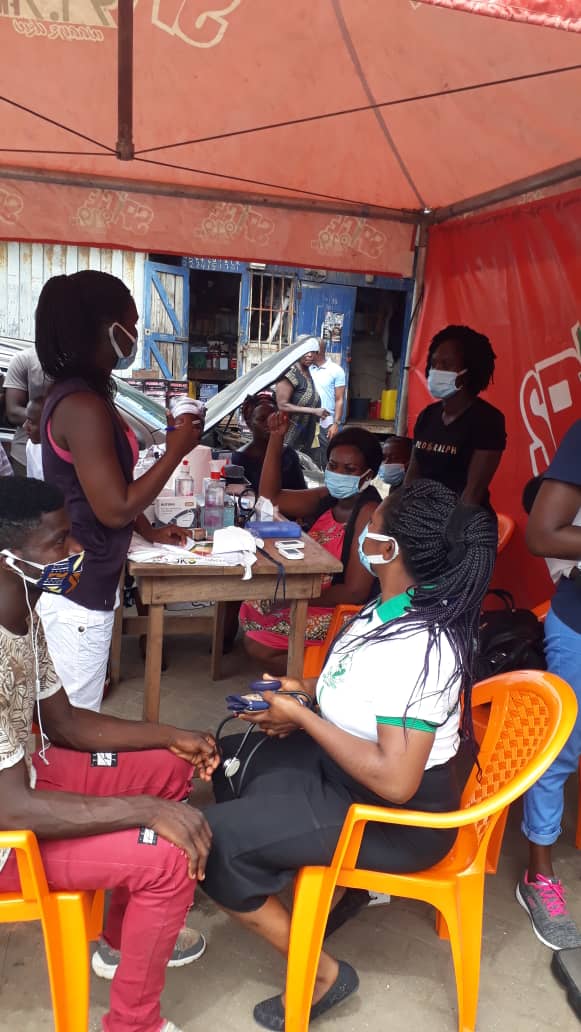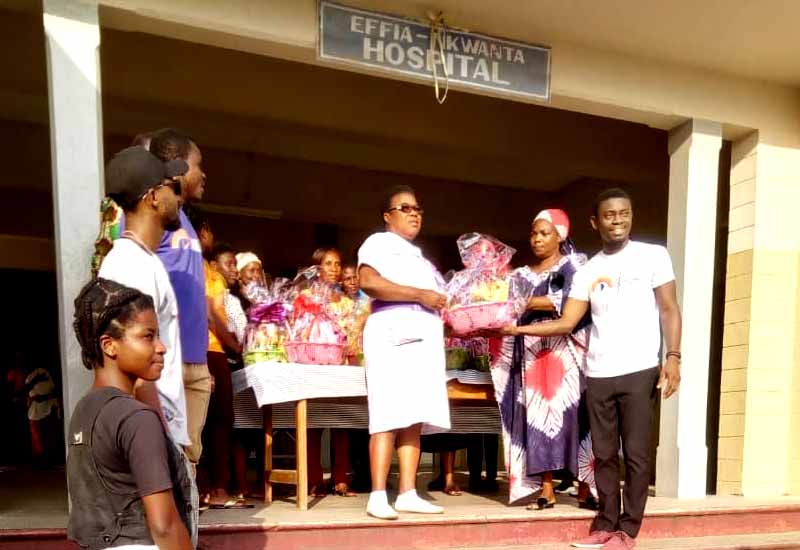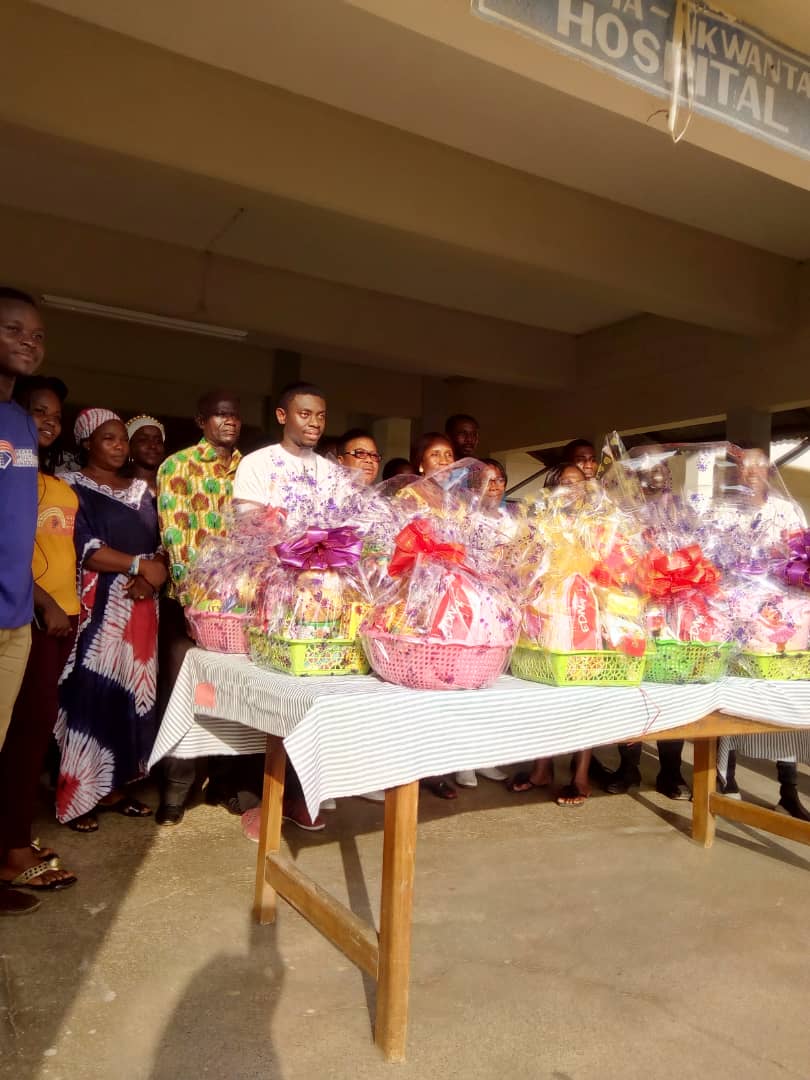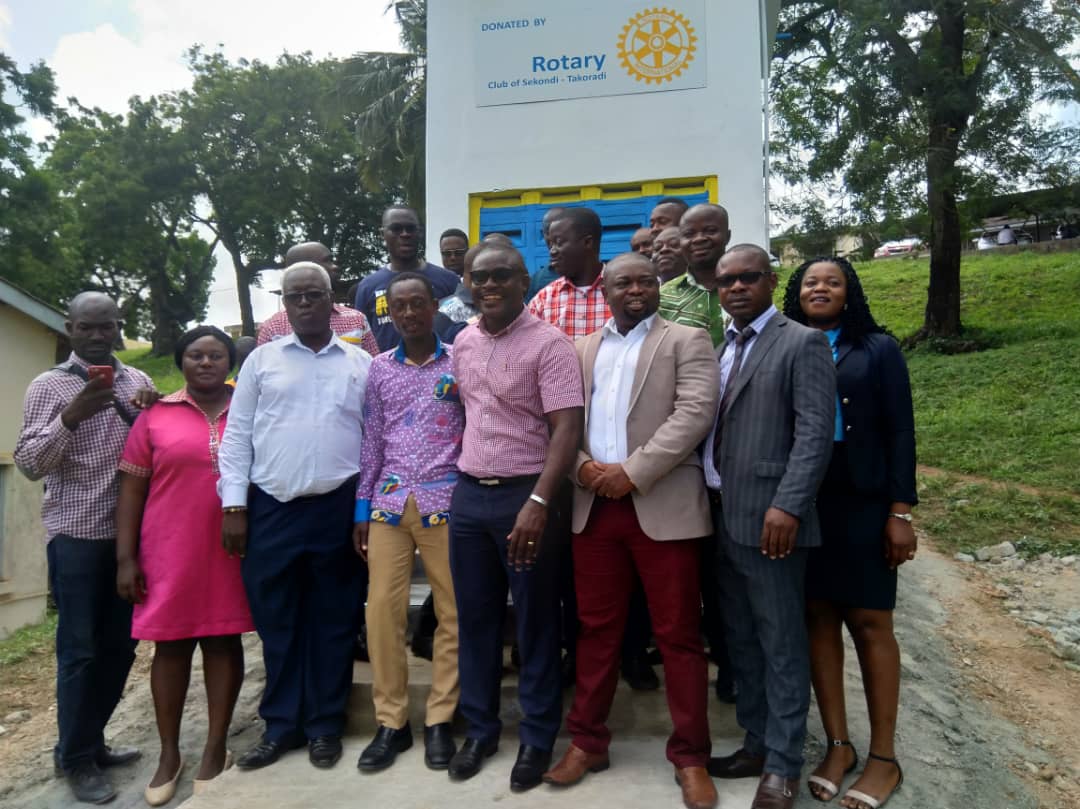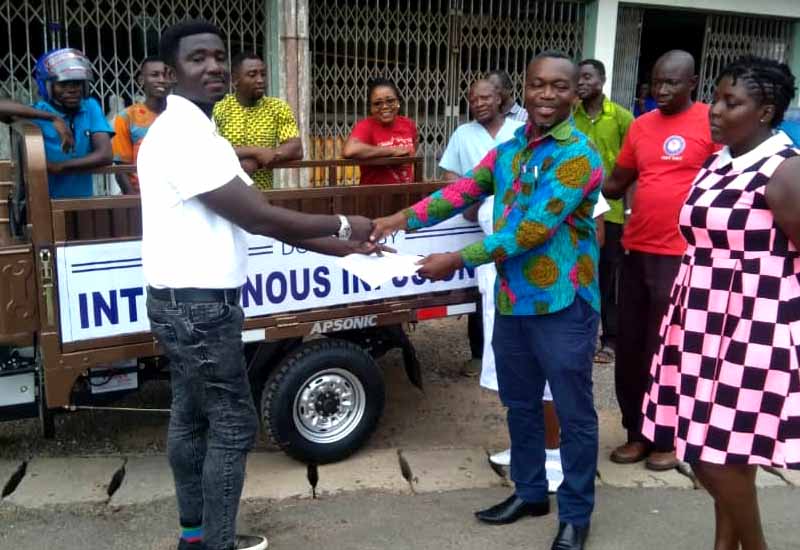“A lifelong learner is a lifelong winner” says the author and motivational speaker Matshona Dhliwayo. My journey in healthcare management so far has been a learning curve. This learning has largely been in the form of quiet understudy of others, especially those senior to me. One such person is Naa Dr Jacob Mahama, the Regional Director of health services in the Western Region with whom I have closely worked for the past eighteen months.
“Naa Director”, as we fondly call him retires from the service this September and I find it apt to share with him and the world what I have learnt from him during this period. If not for anything at all some young manager may profit from these valuable lessons and enhance their career.
Lesson One: Keep to time!
Anybody who has worked with Naa Director quickly notices his knack for timeliness. There is no GMT (‘Ghana man time’) with Naa Director. As someone who struggles with keeping to time, this is one of the qualities I most admire about the man. Many a time I have secretly purposed to arrive at meetings before he did and failed!
I recall an incident when a program was to be launched at my facility. The organizers had slated the event for 8am. He was there at 7:30 and was furious that the place had not been fully set up by then. The staff there were shocked that a strange man (they didn’t know him then) was barking orders at them that early in the day.
Being on time sends a clear signal that you mean business. In a part of the world where people generally have little regard for punctuality it sets you apart and helps a great deal in making you an effective leader. It helps with time management; you start your events on time, finish on time and go on to other business.
I have experienced the opposite of this before at a place where the boss frequently showed up at late at events. Predictably we all started reporting late to events, the events were boring and dragged on late and as a result absenteeism and truancy were common. Predictably, we also posted poor results!
Lesson two: Cultivate a good sense of humour
Laughter, they say is the best medicine and nobody understands this better than Naa Director.
He has a repertoire of great jokes, stories and phrases he drops now and then during meetings and conferences. The timing of his lighthearted contributions often help change the mood especially during heated debates or when members are exhausted or bored.
Management and or leadership is very serious business but great results are best achieved when you don’t take yourself or situations too seriously. Learn to relax. Have a laugh or two. Your stern face and countenance increases the stress levels of your team members and your subordinates. Many great leaders I know or have read about share this trait.
Lesson three: Record everything
There is a Chinese proverb that says “the faintest ink is more powerful than the strongest memory”.
One of the first things you notice about Naa Dr Mahama when you work with him is just how much stuck he is to his laptop computer. He keeps records of every discussion and every decision taken. There have been many times when the secretarial staff fail to produce minutes or aide memoires of previous meetings and his notes have come ably to the rescue.
I was in his office recently to brief him on a meeting I participated in on his behalf with some health partners. He stopped me when I started talking, pulled out his computer and started typing. When I finished my brief he referred to an earlier discussion he had had with the same group just to make sure that our actions were consistent. I was most impressed.
Keeping records does not only help one to recall stuff. It also enables the manager to keep track of the numerous decisions and align them with organizational goals. And, of course, when you have to share your experiences with others your recordings will always come in handy!
Lesson four: Know your management principles and concepts
I have often quietly observed him apply management principles, sometimes without mentioning what he was doing. I have learnt various applications of the pareto principle, for instance, just listening to him.
There is a perception among colleagues in the medical fraternity that management is just about the application of common sense. Well, this is only partly true! Management over the past century has evolved into a science complete with its own language, principles and theories. An understanding of these is key to your success as a manager. You want to manage well? Read management literature. Learn the language and the concepts!
Lesson five: Read beyond your comfort zone
Knowing management concepts is great but is not the end of your learning as a leader/manager. You need to know what’s going on around you.
Dr. Jacob Mahama is an ardent Muslim and yet his knowledge of the Christian Bible is amazing. He often dazzled us at meetings with narrations of bible stories and how they relate to life situations.
This, I believe, is not by chance. He could easily have been content living with principles he knows from the Quran, being a Muslim. But no he isn’t. He ventured out of the confines of his comfort zone. He understands that he is living and working in an environment heavily influenced by the Bible so he purposed to understand it’s teachings. And that is a huge plus!
You cannot succeed as a manager if you do not understand the environmental context within which you live and work. This is particularly important when you move into a new region or district. Get to know the people; their history, their culture, their belief systems, their traditions and even their language if possible. It will help you to get along as well as broaden your sphere of influence.
Lesson six: Stay true to your culture
Naa Director’s traditional smock and hat are legendary. Seeing him in any other attire apart from the above is a rarity that only a few have had the privilege of. He is very steeped in his indigenous Dagban culture and traditions. For a man of very high educational and international exposure this is one most admirable aspect of his great personality.
He replaced his late father as the chief of Zangbalun (a very powerful wing of the Dagomba kingdom) a little over a year ago. With the enskinment of the new Yaa Naa (overlord of the Dagbon Kingdom) Naa Director has risen to the enviable position of the official spokesman to the great King. Who would have expected that a medical doctor would be playing this role?
Our education and positions should not separate us from our culture and from our kinsmen. Culture and tradition add up to our understanding of people and serve as a moral pillar for our dealings with others. Indigenous wisdom is superior to western ideologies in several respects, particularly in the area of communal living. We should not discard it under the pretence of modernity.
Lesson seven: Be a people’s man
One fine morning Naa director invited me to his office for a chat. We had met two days before then so on my way I kept trying to guess why that call, hoping that it wasn’t because something had gone wrong.
I was pleasantly surprised when he told me why he called for me. He started calmly ‘MD’as he often called me ‘what are you doing to make the lives of your staff better?’ He added; I’m referring to the lower level staff, those who are less fortunate than us’. We went on to discuss some things that could be done to make life more comfortable for these lower cadres of staff.
That day I understood why he was more effective as a regional director than many that I knew. He genuinely cares! And that’s the catch. You are more likely to get the best out of people when they know you care about them.
Management is about people. It is extremely hard for anyone to manage effectively when they do not sincerely like the people they manage. So you want to be a good manager, prepare yourself to be a people’s man!
Lesson eight: Be courageous. Take tough decisions for the good
How many regional directors in our public services can transfer three highly skilled surgeons away from the regional hospital or disband the entire management team of that same hospital? Well, the above did happen in 2018 and 2019 under the watch of Naa Director. That was not easy by any stretch of imagination but had to be done. The hospital was sliding downhill and something had to be done.
Naa Director took that decision and spearheaded the processes to see it carried through. I am not here supporting those decisions or actions or trying to provide justification for them.
My point is this; if you want to lead successfully you need to have the courage to make the really strong decisions based on your best of convictions and see those decisions through. It’s not easy but that’s the mark of great leaders.
John Maxwell puts it aptly “successful leaders have the courage to take action while others hesitate”.
Lesson nine: Make use of the informal structures as much as possible
I have, since I joined the western regional team watched on in admiration at the skill and dexterity with which Naa Director has handled many problems or influenced people through the use of the non-official or informal methods and channels. It is perhaps because he grew up in the palace and has grown up to become a chief himself. He has been exposed to the unconventional way our traditional leaders resolve matters using home grown wisdom and practices. Our chieftaincy institution has perfected the time-tested arts of negotiation and consensus building.
He has over this period supervised some of the most difficult subordinates any director in the service could ever handle (including myself!). And he has done so with a lot of finesse and dignity.
You want to succeed as a manager in Ghana, learn to solve some of your challenges away from the official bureaucracies, reporting lines, procedures and systems. This is particularly important in the area of conflict resolution.
Lesson ten: speak last, provide direction
Have you been to a meeting where the boss does all the talking and argues with or gets angered by any contrary opinion or position? I have experienced that elsewhere and didn’t like it one bit. Meetings were a boring routine of listening to the ‘oga’.
If you the boss has all the wisdom, the ideas and the solutions, why call a meeting in the first place? Such opinionated bosses do not get the best of cooperation from their subordinates and that often leads to poor performances.
I have picked up a refreshing strategy completely opposite to the above style. I have observed at meetings and conferences how Naa Director keeps his cool. He never gets into arguments or raises his voice. When there is a heated debate you will not find him joining the fray. Instead he will wait till all the sides have had their say, then he will calmly come in and settle the argument with his own perspectives, often showing the way forward.
He earns a lot of respect and exerts his authority in a very calm and mature manner. It is a very important but difficult technique to master if you have to excel at your leadership or managerial position. This is one of the things I will remember most about Naa Dr Jacob Mahama.
I hope these lessons will be helpful to other healthcare managers, especially those struggling to motivate their teams or to get their teams functioning to the optimum.
We wish him a peaceful retirement from the public service and wish him the best in his future endeavours.
NB; Many thanks to Dr Nana Esi Gaisie for editing and enriching this piece!
Author: Dr Joseph Kojo Tambil, Medical Director, Effia Nkwanta Regional Hospital, Sekondi, Western Region

